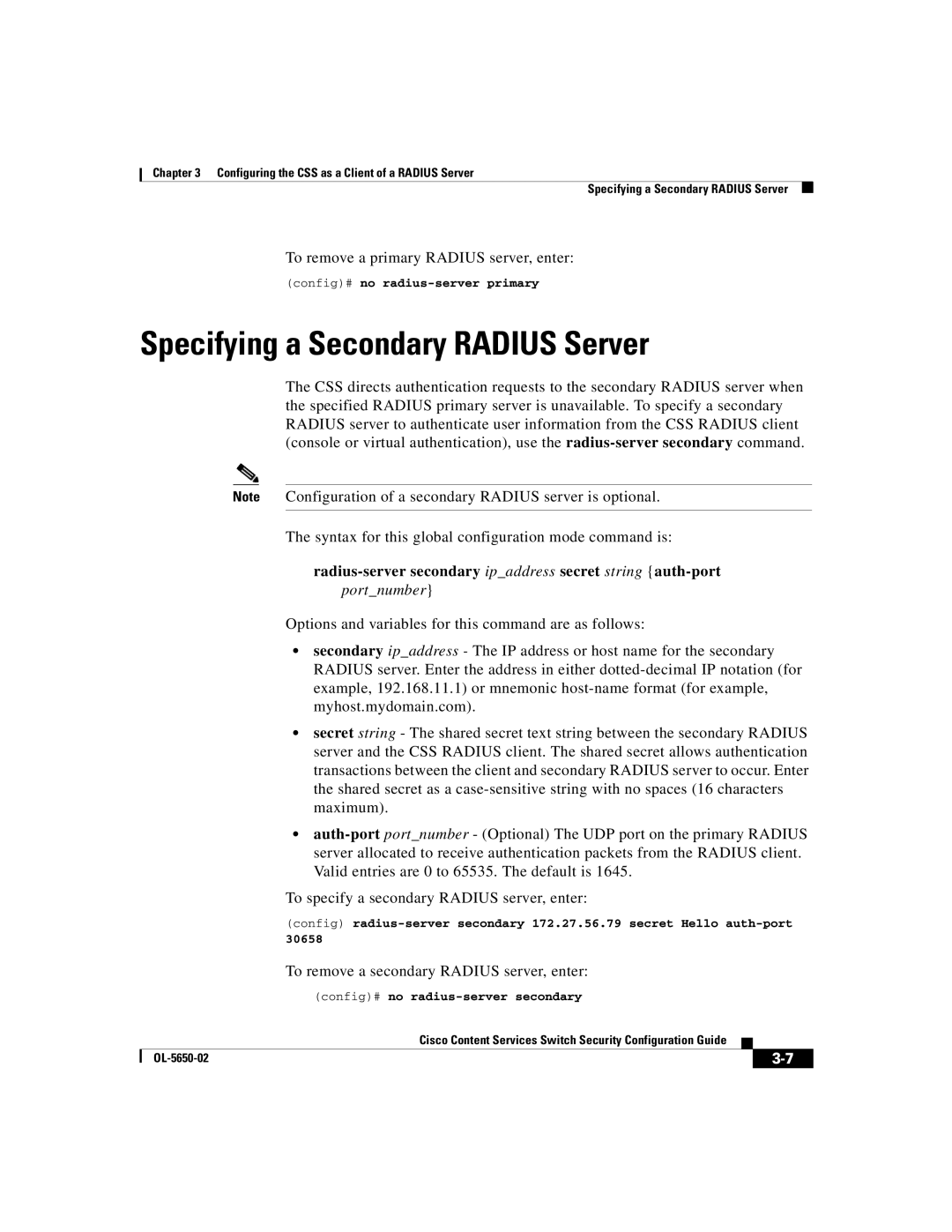
Chapter 3 Configuring the CSS as a Client of a RADIUS Server
Specifying a Secondary RADIUS Server
To remove a primary RADIUS server, enter:
(config)# no radius-server primary
Specifying a Secondary RADIUS Server
The CSS directs authentication requests to the secondary RADIUS server when the specified RADIUS primary server is unavailable. To specify a secondary RADIUS server to authenticate user information from the CSS RADIUS client (console or virtual authentication), use the
Note Configuration of a secondary RADIUS server is optional.
The syntax for this global configuration mode command is:
Options and variables for this command are as follows:
•secondary ip_address - The IP address or host name for the secondary RADIUS server. Enter the address in either
•secret string - The shared secret text string between the secondary RADIUS server and the CSS RADIUS client. The shared secret allows authentication transactions between the client and secondary RADIUS server to occur. Enter the shared secret as a
•
To specify a secondary RADIUS server, enter:
(config)
30658
To remove a secondary RADIUS server, enter:
(config)# no radius-server secondary
|
| Cisco Content Services Switch Security Configuration Guide |
|
|
|
|
| ||
|
|
| ||
|
|
|
